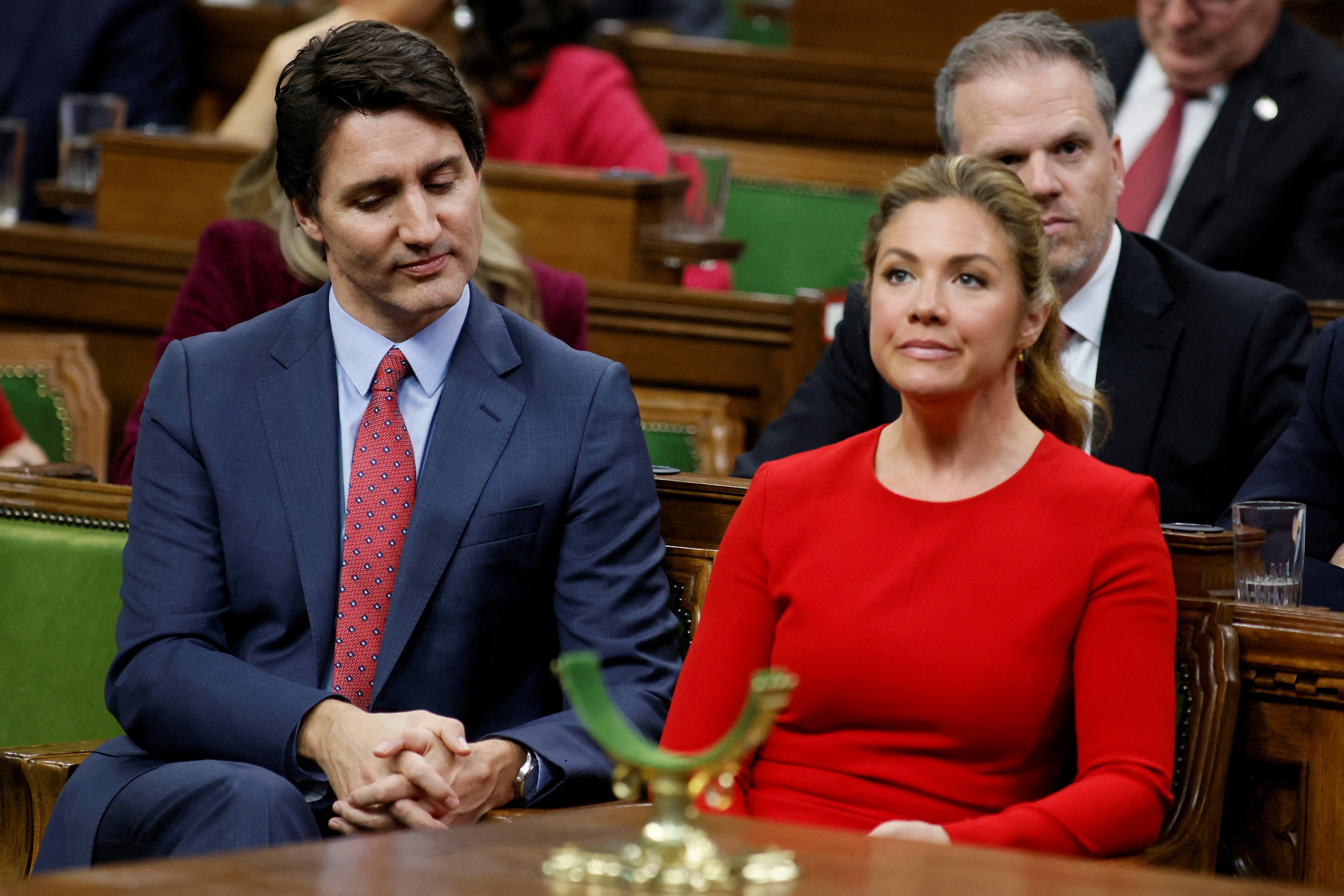Politics is both a family affair and unfair to families, which is why the sad announcement that Canadian Prime Minister Justin Trudeau and his wife Sophie Grégoire Trudeau are separating after 18 years of marriage was not a total shock. The bleating goat of public office demands constant attention, travel, and temptations – especially for a global celebrity power couple like the Trudeaus – often at the expense of domestic life. Still, the Trudeau split made headlines around the world, irradiated social media with lurid rumors, and once again fused the political and personal in an Oppenheimer-like Trinity test whose fallout cannot be fully predicted.
But how much attention does the personal life of a political leader merit? Where does relevant analysis stop and salacious gossip start? It is a line politicians – and Trudeau is no exception – have long blurred.
Justin Trudeau has always been the apotheosis of the personal and the political, born while his father was prime minister and raised in the maelstrom of his parent’s rock opera divorce. History rhymes, and now the son is repeating the same patterns, politically and personally, as the father. Pause for a moment, if possible, and regard these public figures as human beings trying to raise three kids. From that point of view, this is really no one’s business. The kids are not elected officials. Neither is Sophie Grégoire Trudeau. At the best of times, a family breaking apart is painful, but done in the public arena it's open-heart surgery without an anesthetic.
Still, Trudeau consciously made his marriage political fodder. In 2014, he wrote his memoir “Common Ground” (publishing a personal book before a run for a political leadership campaign is now as conventional as stretching before exercise) and in it, he wrote, “our marriage isn’t perfect, and we have had difficult ups and downs.”
At the time, I was hosting the national political TV program on CBC, and I sat down for an interview with Trudeau. I never ask about the personal lives of leaders unless there is something that rises to the national interest, like personal behavior that is either illegal or a genuine security issue, or if something impedes their ability to perform their job, such as an addiction or a health issue. The only third option? If the politician proactively raises the issue, and in this case, Mr. Trudeau did.
I asked him what he meant by raising that issue, and if “it was coded language for extramarital affairs.” He said no. He went on to tell me, “there are times when she [Sophie] hates my job and she hates me for loving my job.” It was raw stuff for a guy on the verge of becoming prime minister.
Why did he reveal that about his marriage in his book? No one had been asking. I have no insight into the personal reasons, but the political answer isn’t that hard to track. His mandate was to win a federal election and to do that you follow the Holy Trinity of campaigns: Be authentic. Connect. Tell a story.
It was a formula that Trudeau copped from Barack Obama, who had perfected it with his own shock-the-world victory, and it’s derived from a Harvard professor named Marshall Ganz, whose famous “public narrative” theory was at the time the political equivalent of Julia Child’s cookbook. Every campaign had it. Ganz’s three rules? First, tell the story of self, your personal history. Then tell the story of us, why we are all in the same boat and need to unite. And close with the story of now, ramping up that fierce urgency for change. Trudeau’s open book on his marriage was simply part one of his story of self. The question is, does he now get to tell people to stop reading as the story turns sour?
The blurred line between the personal and political is only getting blurrier. In the US, the health of Joe Biden is a personal and political issue, and the sexual indiscretions of Donald Trump have long been part of his public life. There can clearly be a political benefit for politicians oversharing their private lives – they need to be “relatable” – but the costs of doing that are high.
Years ago, Justin Trudeau’s father said, “there's no place for the state in the bedrooms of the nation.” Does the nation now have business in the bedrooms of the state?
